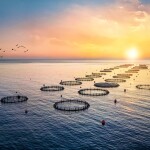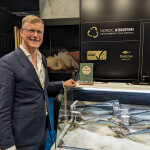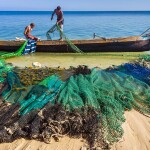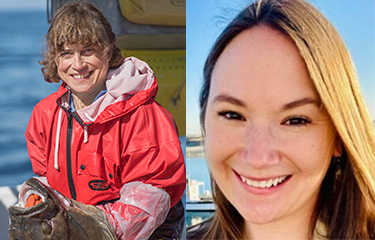Linda Behnken and Aubrey Ellertson Church are members of the Fishing Communities Coalition, an association of community-based, small-boat commercial fishing groups, representing more than 1,000 independent U.S. fishermen and business owners, who share a commitment to the sustainable management of America’s fishery resources. Behnken is a commercial fisherman and the executive director of the Alaska Longline Fishermen’s Association in Sitka, Alaska; and Church is the policy manager for the Cape Cod Commercial Fishermen’s Alliance in Chatham, Massachusetts.
Catching fish from a small boat for a living is a tough business. The days are long, the gear is heavy, and even on a good day, the work deck is rocking and rolling with the ocean. Hard days offer up the challenges of surviving inevitable storms, keeping the engine and machinery running, and interpreting the rapidly changing ocean.
But the biggest challenges for our community-based fishermen are access to fish itself and being heard in the noise of federal legislation and fisheries management. A new process at the National Oceanic and Atmospheric Administration (NOAA) makes that clearer than ever.
Community-based fishermen represent half the commercial fishing jobs in the country, yet they typically have little influence over federal fisheries decisions. The deck of political cards is stacked against their small-scale businesses, favoring corporate profits over culture and community.
The potential for change is on the horizon. Federal managers are considering revisions to the guidelines that rule federal fishery management. If we seize this moment, we can amplify the voices of our fishing communities for generations to come.
U.S. commercial fisheries are among the most sustainably managed in the world, thanks in large part to a regional approach and periodic guideline updates that allow us to learn and improve. But much has changed in our oceans and fishing communities over the decades since the Magnuson-Stevens Act’s National Standard guidelines were written.
Climate change is creating more extreme weather events and rapid changes to oceanic conditions — and small-scale, community-based fishermen are taking the hardest hits. This year’s revision process offers a significant opportunity to strengthen the management response to climate change and to ensure the voices of community-based fishermen are heard and heeded in fisheries management.
Now is the time for NOAA to actively engage underserved communities and the fishermen whose ways of life are most affected by climate change. The Biden administration has been steadily advancing opportunities to incorporate climate change and justice into the regulatory process. For example, NOAA Fisheries recently released its Equity and Environmental Justice (EEJ) strategy. NOAA can achieve demonstrable progress by embedding equity and environmental justice principles in the National Standard Guidelines.
Now is also the time for small-scale fishermen to speak up in support of changes to the guidelines that build climate resilience in our fisheries and fishing communities.
Fishing communities are defined by place even more than they are defined by the fish their residents harvest. Fishing communities have a rich cultural heritage and a history of defending ocean health for future generations. Small-scale fishermen have been facing challenges for decades: a warming ocean, shifting fish stocks, industrial fishing interests (both foreign and domestic), high permit costs, and outdated science.
Our oceans are changing, and the guidelines must also change. But any changes must prioritize sustaining our fisheries, fishery-dependent communities, and ocean health for benefits that reach far beyond our coastal communities and stretch across generations. The revisions to the National Standard Guidelines must deepen the management commitment to supporting healthy fisheries and fishing communities by amplifying the voices of small-scale fishermen. The guidelines must be updated to incorporate NOAA’s commitment to equity and environmental justice by actively engaging historically underserved communities and by tipping the scale toward culture and the way of life that has sustained ocean health and working waterfronts for generations.
Photos courtesy of Fishing Communities Coalition






